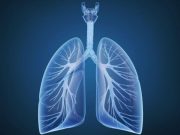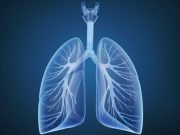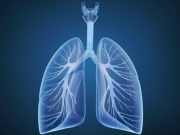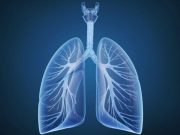Tag: Cancer: Lung
Screening Nonsmokers May Up Lung Cancer Overdiagnosis, Spurious Survival Rates
Promoting low-dose CT screening among mostly nonsmoking women increased detection of early-stage, but not late-stage, lung cancers
2021 USPSTF Lung Cancer Screening Criteria Expand Eligibility
Compared with 2013 USPSTF criteria, more patients eligible for lung cancer screening with less racial disparity in access
Incidence of Advanced Lung Cancer Continues to Decline in the U.S.
During 2014 to 2018, incidence continued to increase slowly for female breast cancer, remained stable for prostate cancer
Stage Shift Tied to Decreased Population Mortality in NSCLC
Diagnostic shift from later-stage to earlier-stage disease may have implications for evaluation of treatments and mortality outcomes
Blood Metabolomics May Detect Early Lung Cancer
Predictive models based on comparison of serum metabolomic patterns for patients at time of lung cancer diagnosis and matched controls
ACS: Telemedicine Lung Cancer Screenings Offered During Pandemic
Distribution of Lung-RADS results did not differ for lung cancer screenings with telemedicine versus in-person visit
Depression May Worsen Survival in Advanced Non-Small Cell Lung Cancer
Two-year trajectory of depression symptoms significantly linked to cancer survival; association for anxiety not significant
Revised Guidelines Perpetuate Disparities in Lung Cancer Screening
In newly revised USPSTF guidelines, African American and Hispanic individuals continue to be less likely to be eligible for lung cancer screening
Artificial Intelligence May Speed Lung Cancer Detection
Researchers say minimization of false positives necessary prior to clinical use
1990 to 2017 Saw Increase in Global Incidence of Mesothelioma
Mesothelioma incident cases and deaths associated with mesothelioma decreased after 20 years of complete ban on asbestos














